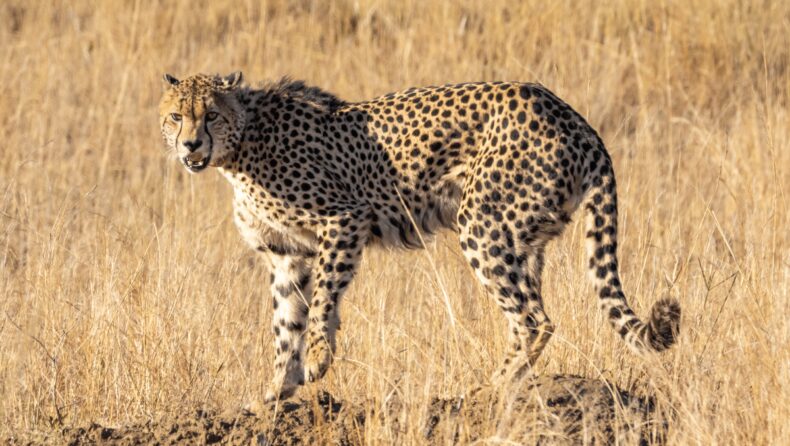Approximately 12-14 wild cheetahs that are perfect for starting a new cheetah population would be brought in from South Africa, Namibia

According to sources, a second shipment of 12 cheetahs from South Africa is anticipated to arrive in India in January
Plan for a new generation of cheetahs

Twelve cheetahs will be relocated to Kuno National Park; negotiations with the South African government are advanced, and the animals are anticipated to arrive in January, according to a source in the Union Environment ministry.
The 20th meeting of the National Tiger Conservation Authority (NTCA) was held at the Bandipur Tiger Reserve in Karnataka, where representatives from the Kuno National Park provided a presentation on the readiness for the introduction of the 12 cheetahs, consisting of seven males and five females.
State minister for environment Ashwini Kumar Choubey informed parliament about 12 cheetahs have been isolated for the last six months in South Africa
According to the sources, a memorandum of understanding for the transcontinental transfer of the spotted cats has not yet been signed.

Approximately 12-14 wild cheetahs that are perfect for starting a new cheetah population would be brought in from South Africa, Namibia, and other African countries as a founder stock for five years initially, and then as required by the programme, according to the “Action Plan for Reintroduction of Cheetah in India” created by the Wildlife Institute of India.
On September 17, the day before his 72nd birthday, Prime Minister Narendra Modi released the first group of eight cheetahs—five females and three males—from Namibia into a quarantine area at the Kuno National Park.
After being deemed extinct in India in 1952, the cheetah returned there after 70 years.
Due to overhunting and habitat destruction, the giant carnivore was fully eradicated from the nation.
In 2009, the Wildlife Trust of India began talking about reintroducing 12 cheetahs to India. To investigate the possibility of reintroduction, experts from all around the world and government representatives decided to survey the sites.
Proposal of bringing cheetahs
Priority was given to the old cheetah range states of Gujarat, Rajasthan, Chhattisgarh, and Madhya Pradesh. Kuno Palpur National Park in Madhya Pradesh had the highest rating out of the ten sites surveyed in the Central Indian states due to its acceptable habitat and sufficient prey base.
The National Tiger Conservation Authority reapplied to the Supreme Court in January 2020, asking for permission to reintroduce cheetahs to India. It was claimed that this time, the African cheetahs would be introduced experimentally in a carefully selected habitat.

In addition to appointing an expert team to assess the possibility of introducing the African cheetah on a bigger scale, the Supreme Court finally permitted this that same year.
The Indian government published a cheetah action plan in 2021. By August 15, 2022, when India would have celebrated 75 years of independence, cheetahs were meant to be introduced, but difficulties caused the introduction to be postponed by another month. After weeks of intense preparation on the part of the Madhya Pradesh administration, the cheetahs were finally brought in from Namibia on 17 September.
The government’s action plan underlined that to rescue cheetahs, one would also need to save other endangered species of the grasslands and open forest habitats, some of which are at risk of going extinct, in addition to its prey base of vulnerable species.













